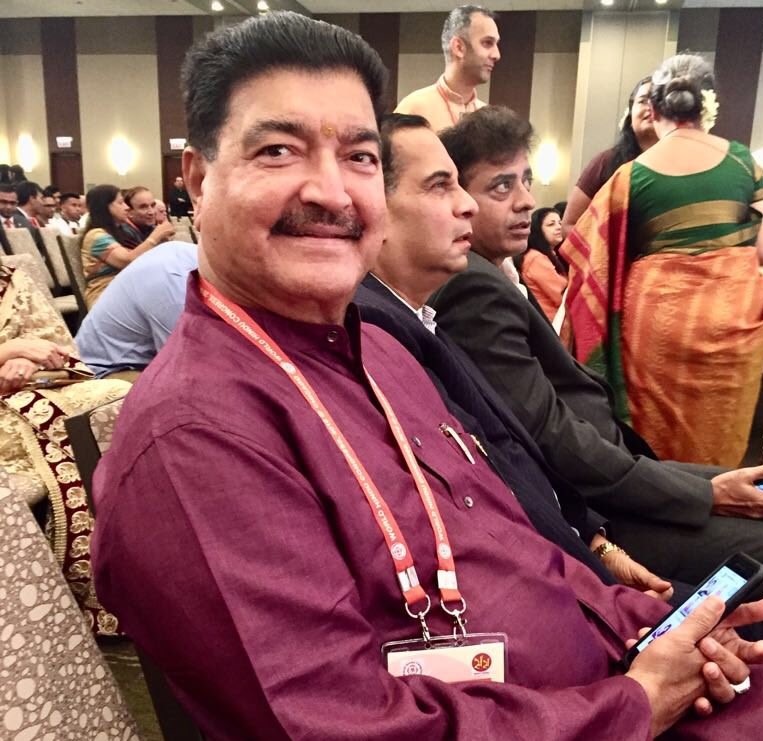- Saturday, April 05, 2025

By: indiaweekly.biz Staff
INDIA’S Bank of Baroda has sued UAE-headquartered NMC Health group’s owner Bavaguthu Raghuram Shetty for allegedly breaching an agreement to provide 16 assets as collateral for debts, a news report has revealed.
As financial turbulence rocked his empire, the Abu Dhabi-based Indian entrepreneur had a meeting with Bank of Baroda officials in March discuss his outstanding debt of about $250 million, said the Reuters news agency.
Based on court filings, it added that the bank loans had been “granted on the strength of Shetty’s reputation as a billionaire and his businesses”, especially NMC Health, whose operations in the UK went into administration on April 8, 2020.
Shetty, however, objected in court that the agreement cited was a “fraudulent document”.
Analysts noted that such mega-exposure deals based on reputation – or “name lending” — continued to happen in the Gulf region in spite of some cases going awry.
Such banks, they added, focused “on cash flow to lend to companies instead of collateral partly because insolvency rules are relatively new and untested” compared with systems in the West.
Shetty, who had migrated from Karnataka to the UAE in 1973, built his empire after starting off as a pharmaceutical salesman.
He was described as “the world’s richest Kannadiga”, with a net worth of about $3.15 billion in 2019, according to Forbes.
However, following the allegations about malpractices, NMC Health — which operated about 200 medical facilities in 19 countries — reportedly ended up wth a reported debt of over $6 billion. And the company’s share value plummeted since December.
In February, Shetty stepped down from NMC Health’s directorial board.
The Gulf media also reported that the Central Bank of the UAE had ordered a freeze on many accounts operated by Shetty and his family, and blacklisted several companies linked to the tycoon.
Often hailed as the Gulf’s “ultimate immigrant success story”, Shetty and his NMC Health, the UAE’s biggest private medical group, had borrowed from “dozens of banks either headquartered or with bases in the region” without providing any collateral, the Reuters report said.
Things turned murky as the NMC group recently got embroiled in charges of fraud and “disclosure of more than $4 billion in hidden debts”. This left many lenders “nursing heavy losses”, and seeking legal recourse.
In the Bank of Baroda case, Shetty’s legal team claimed in mid-June that that issue cannot be pursued in India since the loans had been issued in the UAE. The bank had disbursed the loans through its branches in UAE, Oman and Mumbai.
Notably, Shetty pinned the blame on “a small group of current and former executives of his companies” for the NMC group’s financial troubles, accusing them of fudging documents to take loans using his name.
His lawyers told the court that he had complained to Abu Dhabi’s Federal Attorney General that he had been “a victim of fraud, forgery and money laundering”.
Banks in the UAE recently declared exposure of over $2 billion in deals with NMC.
Incidentally, the UK’s Financial Conduct Authority had launched a probe against the company earlier this year. NMC had made a foray into the London Stock Exchange in 2012, and featured on the FTSE 100 index.
The NMC scandal started to unravel as short-seller Muddy Waters Research questioned the group’s financial statement in 2019.
“We thought they understated their debt by at least several hundred million dollars, and that cash balances were overstated,” Muddy Waters’ founder Carson Block told Reuters. “But $4 billion of undisclosed debt — nobody can find a rug big enough to cover that up, and that’s why it went the way it went.”